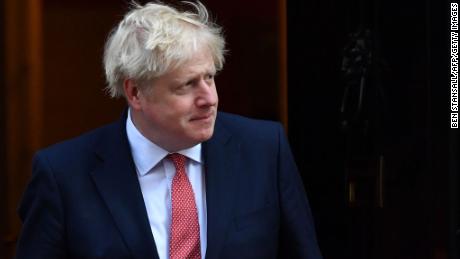
As Westminster slowly returns to normal, talk is turning to what happens next.
As things stand: Parliament was not officially suspended; Brexit is happening on October 31; Parliament has passed a law instructing Boris Johnson to request a Brexit extension and avoid a no-deal Brexit; Johnson says he won't.
So Brexit becomes a game of chicken.
We know that Johnson wants an early election, as does his rival, Jeremy Corbyn.
Where they differ is on whether that happens before Brexit has happened, or after it has been extended to avoid a no-deal exit.
Corbyn has two options: call for a vote of no confidence in Johnson's government or keep applying pressure on the Prime Minister hoping he will resign.
Both options are risky as they could lead to Johnson simply sitting tight and watching a no-deal Brexit happen by default.
But the options for Johnson are hardly enviable. Resignation offers Johnson some electoral advantages, as it would mean he could fight an election campaign while keeping his promise that he didn't delay Brexit.
But it would also mean suffering the indignity of handing power to a man he has previously called a national security risk.
Or he can sit tight, keep suffering parliamentary losses, and watching his growing opposition run rings around him.
The Supreme Court's ruling against Prime Minister Boris Johnson is unprecedented, a lawyer central to the case has told CNN.
Gina Miller, the lawyer who successfully appealed the High Court verdict against her legal challenge to Johnson's prorogation, told Bianca Nobilo she was "in shock" at the unanimous, 11-0 decision.
She added she was “in a second phase of shock that the Prime Minister is now trying to downplay this.”
"No prime minister has ever used their office to do this ... no prime minster has illegally advised the Queen," Miller said.
"This is absolutely fundamental to our constitution ... he cannot -- or in fact, any prime minster cannot -- just close down or shut up parliament, just because parliament disagrees with them."
"The case was not about Brexit, it was not about politics, it was about the fact that he was putting himself above the law, and the courts have found that he cannot do that."

It is difficult to articulate how unprecedented the UK's Supreme Court's ruling is.
Britain's highest court was established a decade ago next week. Its has been dragged into the gravitational pull of the Brexit saga before -- notably when it decided Parliament must get a vote on a Brexit deal, a decision that ultimately doomed Theresa May's attempts to leave the European Union and finally sunk her premiership.
But it has never faced a case of this magnitude, nor one which drew so much attention.
And its newest judgement could spell more immediate doom for May's successor, given that it explicitly found that his own actions were unlawful.
That's the view emanating from Parliament's opposition parties, who reacted with a tsunami of attacks on Johnson.
Ian Blackford
✔
@IanBlackfordMP
Outside the UK Supreme Court but MPs should be sitting in Parliament. Boris Johnson has lied and lied, now the court has now found him to have acted unlawfully.
He must resign.
We will need a Queen's Speech, Johnson says
Boris Johnson has just given a short speech to business leaders in New York, but he addressed the damning Supreme Court ruling at the beginning.
“There’s been a court case in our country this morning which I think one or two of you may have picked up," he joked.
“I just want to say to everyone watching back home that for the avoidance of doubt, I have the highest regard for our judiciary," he went on. “But I must say I strongly disagree with this judgement”
He added that his government will not be deterred from delivering on the “will of the people” and securing Brexit.
And he said “we will need a Queen's Speech to set out what we are going to do, and I think frankly that is what the people ... want to see.”
“My heart lifts when I come to New York," he added, "court judgements or otherwise," before beginning his prepared remarks on business.
No comments:
Post a Comment